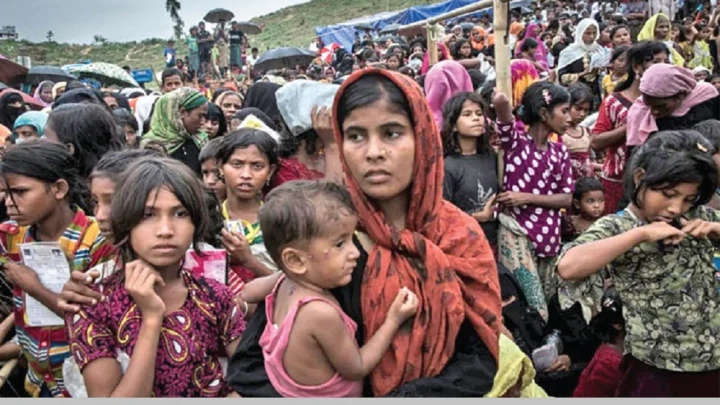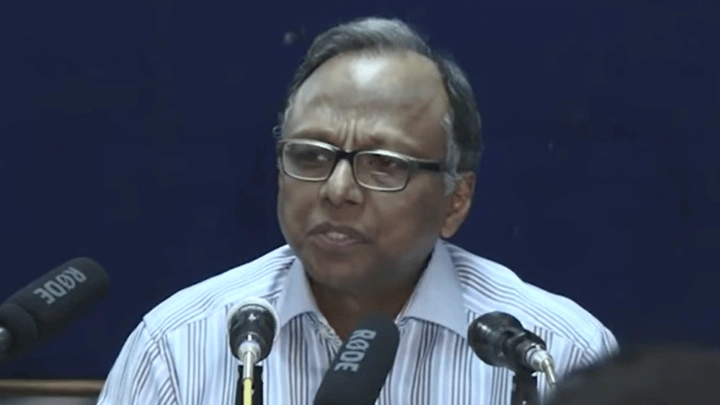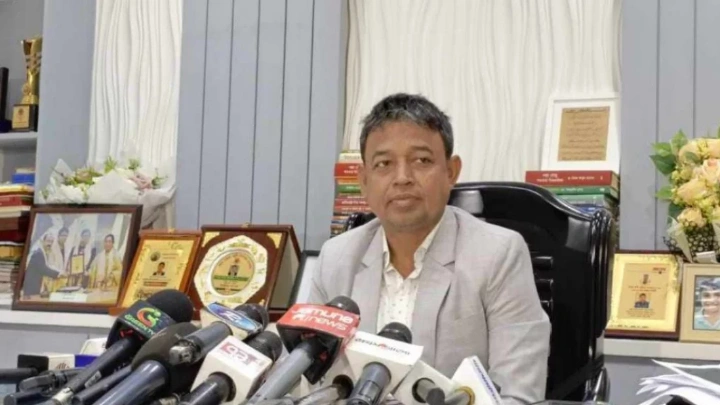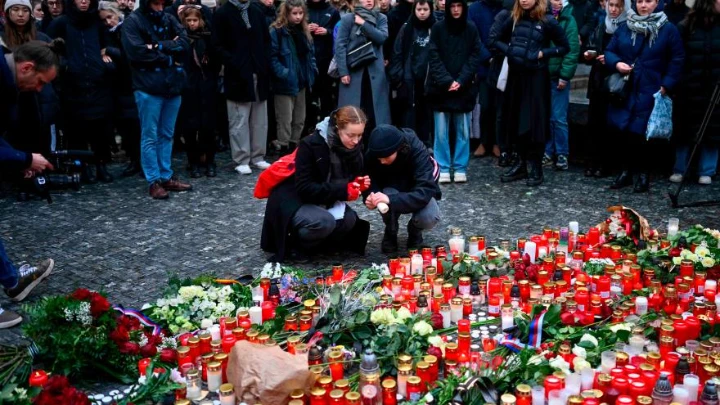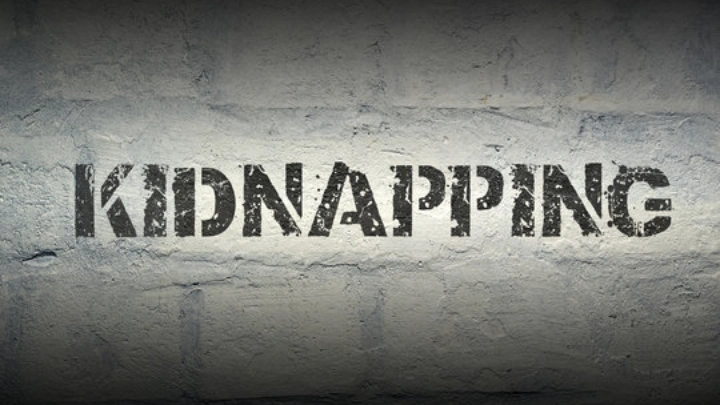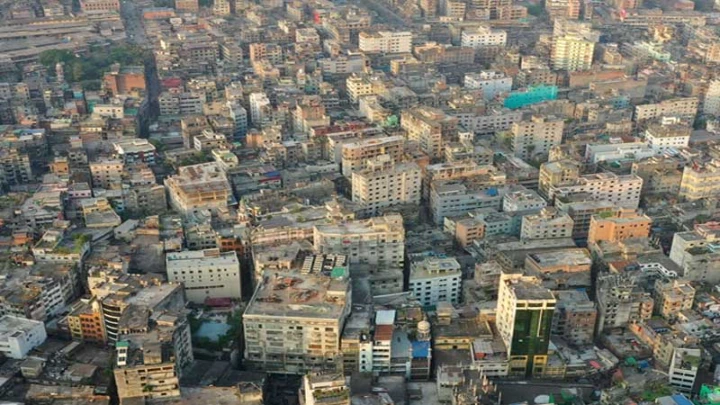26 murders in 5 months are a result of increased gang violence in Rohingya camps
Shining BD Desk || Shining BD
Acts of violence are on the rise in Rohingya camps in Ukhiya and Teknaf upazilas of Cox’s Bazar with armed terrorist groups killing Rohingya leaders and volunteers for various reasons, including thwarting the process of repatriating Myanmar’s displaced nationals to their homeland.
A total of 26 murders took place in Rohingya camps in the last five months, terrifying the common Rohingyas as well as the locals around the camps.
On November 8, a Rohingya youth was shot to death at a refugee camp in Ukhiya. The deceased was identified as Mohammad Selim, 30, son of Abdus Salam of Teknaf Muchni Rohingya camp.
Sheikh Mohammad Ali, officer-in-charge of Ukhiya Police Station, told the Daily Sun that three unidentified persons brought bullet-hit Selim to Kutupalong MSF Hospital in Ukhiya in the early hours.
After Selim died while undergoing treatment, the three men fled away, he added.
The police officer said Selim was a member of ‘Nabi Hossain Group’. The shooting took place due to a dispute between terrorist groups of Nabi Hussain and Munna.
With this, at least 10 Rohingyas were killed in the camps in the last two months while 26 in the last five months.
Most of the victims are camp management committee leaders (Majhi), sub-Majhi, volunteers and night guards.
According to sources, the main target of the criminal groups is the people who support Rohingya repatriation.
Rohingyas said the murders are aimed at thwarting the repatriation process by instilling fear into the displaced Myanmar nationals.
Due to fear, Rohingyas have kept mum about the repatriation process.
They demanded that a joint operation be carried out in camps in coordination with the army to eliminate criminal activities and ensure security of Rohingyas.
Superintendent of Police of Cox’s Bazar Mahfuzul Islam said analysing the recent events in the Rohingya camps, it has been seen that these murders were committed due to personal conflict, group conflict, moving from one camp to another and over establishing supremacy.
Along with this, there is unemployment and depression, he said, adding that efforts are underway to bring the overall situation of the camps under control.
Meanwhile, a special operation titled ‘Operation Root Out’ was launched to bring the law and order in Rohingya camps under control. The drive came after two Rohingyas were killed in Camp-17 on October 27.
Senior Assistant Superintendent of Police (ASP) of the Armed Police Battalion (APBn-8) Md Farooq Ahmed said the operation is being conducted against the peace breakers. “Those who have multiple cases against them, including of murder, robbery and snatching, are being brought to book. Apart from this, patrolling within camps has been strengthened,” he added.
According to Cox’s Bazar district police, 125 murders took place in Rohingya camps from August 25, 2017 to November 8, 2022.
Of them, 26 people were murdered in the last five months, including nine in October alone.
The Ukhiya OC said, “Cases were registered in connection with each murder. APBn and police are jointly working to arrest the accused. Investigation in all cases is also going on.”
On October 27 last, criminals shot Ayat Ullah, 40, and Mohammad Yeasin, 30, to death after picking them up from their houses in a Rohingya camp of Ukhiya.
Syed Harun-or-Rashid, commanding officer of APBn-14, said, “The criminals broke open the doors of their houses as they were asleep with their families at Block-C in Balukhali camp. They took them outside and started firing at them, leaving Yeasin dead on the spot.”
With critical injuries, Ayat was rushed to an NGO-run hospital in Kutupalong camp where a doctor declared him dead, he said, adding that the killers fled away immediately after the incident.
Ayat’s brother Salamat Ullah said his brother used to work in Camp-5. Besides, he used to speak against criminal activities of various groups inside the camp and cooperate with the administration.
Yeasin’s brother Mohammad Hasan said miscreants had cut off the hands and legs of one of the brothers of Ayat. “Then my brother helped the Majhi and police. He used to keep an eye on the movement of criminals and inform the administration of their activities. Miscreants might have targeted and killed my brother for this.”
On October 26, Mohammad Jasim was killed in Camp-10. On the same day, another Rohingya named Mohammad Salam was shot to death. On October 18, Syed Hossain was killed in Camp-19.
Syed Hossain’s father Jamal Hossain was murdered on October 10. On October 15, Camp-13 Majhi Mohammad Anwar and sub-Majhi Mohammad Yunus were shot to death. Mohammad Hossain, sub-Majhi of Camp-9, was killed on October 12. A child named Tasdia Akhtar, 11, was killed in firing by terrorists with APBn on October 4.
A volunteer named Mohammad Ershad, 22, was killed on September 22 while a leader (Majhi) named Mohammad Zafar, 35, on September 21, and another volunteer Mohammad Ilyas, 35, on September 18. On August 9, two Rohingya leaders -- Majhi Abu Taleb, 40, and Majhi Syed Hossain, 35, were murdered.
Md Ibrahim, 30, a volunteer at Nayapara Rohingya Camp in Teknaf, was killed on August 8 while Habib Ullah, 20, was shot in the same camp on August 1. He died on August 4 while undergoing treatment. On August 1, a Rohingya youth named Nurul Amin, 26, was shot by Arakan Rohingya Salvation Army (ARSA) terrorists in Madhurchhara Rohingya Camp in Ukhiya.
On June 22, Mohammad Shah, the so-called leader of ARSA, a militant organisation based in Myanmar, was killed by terrorists while another ARSA leader Md Salim on June 15.
Miscreants shot and killed a Rohingya volunteer named Md Salimullah in Ukhiya camp on the night of June 16 while Kutupalong Camp-4 volunteer Mohammad Samin, 30, was killed on June 10 and Rohingya leader Azim Uddin, 35, on June 9.
Apart from this, two Rohingya leaders -- Sana Ullah, 40, and Sona Ali, 46, were killed in May.
Gafur Uddin Chowdhury, chairman of Palongkhali Union Parishad, said, “As shelter camps are surrounded by mountains, criminals can quickly go into hiding. Therefore it’s necessary to recover weapons from the criminals soon as possible to bring the situation under control.”
“If necessary, law enforcement agencies should conduct joint operation in coordination with the army. Criminals need to be brought to book at any cost,” he added.
Source: Daily Sun
Shining BD

